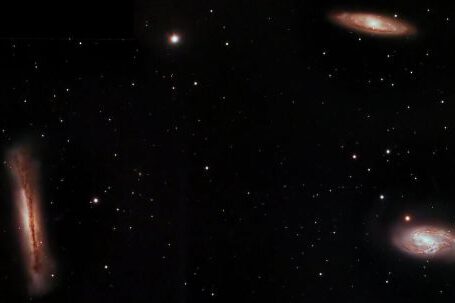Time is a fundamental concept that governs our daily lives. From the moment we wake up to the time we go to bed, we are constantly aware of the passing minutes and hours. But what if I told you that time behaves differently in space? It may sound like something out of a science fiction movie, but it’s actually a well-established scientific fact. In this article, we will explore the fascinating concept of time dilation and how it affects our perception of time in the vast expanse of space.
The Theory of Relativity
To understand how time behaves differently in space, we must first delve into the theory of relativity, proposed by Albert Einstein in the early 20th century. According to this theory, the laws of physics are the same for all observers, regardless of their relative motion. However, when it comes to the perception of time, things get a little more complicated.
Time Dilation
One of the most intriguing consequences of the theory of relativity is the phenomenon known as time dilation. Time dilation occurs when the speed or gravitational potential of an object affects the passage of time. In other words, time can appear to move slower or faster depending on the conditions in which an observer finds themselves.
The Twin Paradox
A classic example of time dilation is the famous twin paradox. Imagine two identical twins, one of whom stays on Earth while the other embarks on a journey through space at near the speed of light. When the traveling twin returns to Earth, they would have aged significantly less compared to their twin who remained on Earth. This paradox highlights the fact that time dilation is not just a theoretical concept but a measurable phenomenon.
Gravitational Time Dilation
Another factor that affects the behavior of time in space is the strength of gravity. According to Einstein’s theory, the closer an object is to a massive gravitational source, the slower time will pass for it. This means that time would appear to move slower in the presence of a strong gravitational field, such as near a black hole.
Practical Applications
The concept of time dilation has important practical applications in various fields of science. For example, in satellite-based navigation systems like GPS, accurate timing is crucial for determining the position of an object. However, due to the satellites’ high speed and the weaker gravitational field in space, time dilation must be taken into account to ensure accurate positioning.
Time Travel?
The idea of time dilation in space has also sparked the imagination of many science fiction enthusiasts, leading to the concept of time travel. While the possibility of traveling through time remains purely speculative, the observed effects of time dilation have certainly inspired countless works of fiction.
The Impact on Astronauts
For astronauts who spend extended periods of time in space, the effects of time dilation can be significant. As they orbit the Earth at high speeds or venture further into the cosmos, their perception of time would be altered. This can have profound psychological effects, as they may feel disconnected from the passage of time as experienced on Earth.
In Conclusion
Time behaves differently in space due to the effects of time dilation caused by speed and gravity. This concept, established by Einstein’s theory of relativity, has been proven through various experiments and observations. While it may not have practical implications for most of us in our daily lives, it is a fascinating aspect of the universe that challenges our understanding of time and space. So the next time you gaze up at the stars, remember that time is not as straightforward as it seems.





